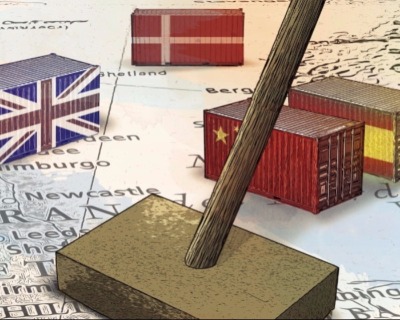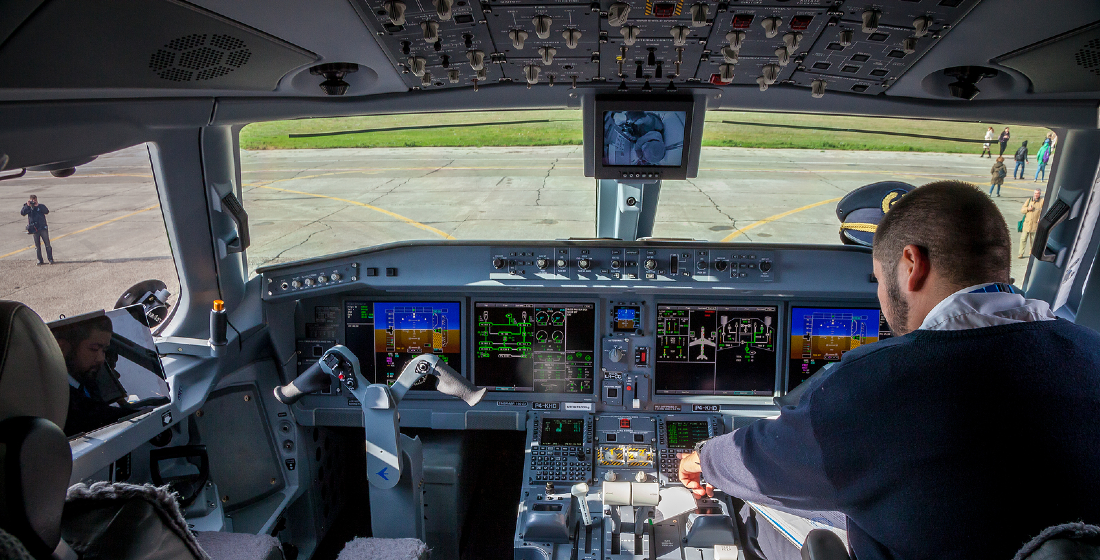Trade Wars: How trade is being weaponised
TXF joins the front line with Rebecca Harding co-author of ‘Trade Wars – how trade is being ‘weaponised’ to discuss the theory and narrative behind the book.

All delegates to TXF Amsterdam and TXF Venice will be able to pick up a copy for free.
TXF: Trade Wars: how trade is being weaponised - that’s a hard hitting title. Can you summarise your main line of argument, and why you felt compelled to write this book?
Rebecca Harding (RH): The biggest political risk facing global trade and the trade community is the rhetoric that is being used by politicians to re-engage the general public in the political process. Since the Brexit referendum and since President Trump was elected, the language of trade has no longer been that of collaboration, growth, opportunity and integration. Instead we are talking about barriers, trade wars, defence, walls and retreat.
These are not helpful at all and most worrying of all, Theresa May used her Article 50 letter to conflate trade and European security while Donald Trump has stated quite clearly how much a trade deal with China rests on their “doing something” about North Korea.
Politicians may have failed to explain why globalisation matters to the general public, but this type of rhetoric is counter-productive and is set on a path to Mutually Assured Destruction. The book had to be written now as a wake-up call to everyone about the dangers of treating trade in this “zero sum” way.
TXF: How did you research this book? What were the main tools and sources you used?
RH: The research from the book came from three principle sources. We conducted a big literature review across a number of disciplines and we have taken a lot of documentary and informal, discussion-based material from conversations with experts as well as media outlets. But the real hard data is based on Equant Analytics’ trade dataset which mirrors trade between countries making imports equal exports across the world. This allows us to see things that are happening in trade that are not obvious in publicly available data and hence take a completely different approach to the importance of trade in the world.
TXF: What would you regard as your research’s most compelling finding?
RH: We were stunned by three things: first, the importance of what we have called “strategic trade”. Which is the trade hidden from view in publicly available data but that is a clear measure of the strategic intent of governments around the world. This allows us to say things about the importance of trade not just to businesses but also to governments.
Second, noting how closely correlated some of this hidden trade is with commodity prices and, perhaps more importantly, with country GDP in the largest economies as well.
Finally, and rather disturbingly, we found a clear link between a country’s GDP, imports of arms and levels of political instability measured through violent deaths. Although this now gives us a quantitative and replicable measure of country-level political instability, the sad thing is that these relationship are strongest in some of the most conflict-ridden countries of the world. In itself, this is fuelling mass migration and perpetuating the anti-globalisation rhetoric of governments.
TXF: Was there anything you discovered that really surprised you, or challenged your own thinking?
RH: We debated between ourselves about how to interpret the size of the dual-use goods trade for the most developed economies of the world. We had seen trade as purely transactional between companies before we wrote this book but what became apparent during writing was the extent of deliberate policies to protect national and strategic interests of countries. Our thinking was that governments don’t trade, companies do. This has now changed - clearly national interests play a much stronger role than the globalisation and “flat earth” theorists would have predicted!
TXF: What next for Trade Wars? Do you have any predictions for the future of trade based on your findings?
RH: The rhetoric will continue - in the UK it may become worse as this is encouraged the “under-dog” thinking and “blitz” mentality that we see as our national strength in time of crisis. Trump has taken a temporary rain-check on his belligerent attitudes towards NATFA and even the EU recently and maybe this suggests a stronger strategic brake on him that might be apparent on Twitter.
We have to be optimistic - the alternative is the collapse of the global trade system and, as above, mutually assured destruction because of our zero-sum thinking. Those of us who believe that free trade is essential to economic development and growth must ensure that we also explain why everyone benefits from it - not just the elites. Otherwise the unthinkable becomes thinkable.
“Trade Wars - how trade is being weaponised” by Rebecca Harding and Jack Harding, will be available to all delegates at TXF Amsterdam: Commodities, Trade & Treasury and TXF Venice: The Global Borrowers Summit.





